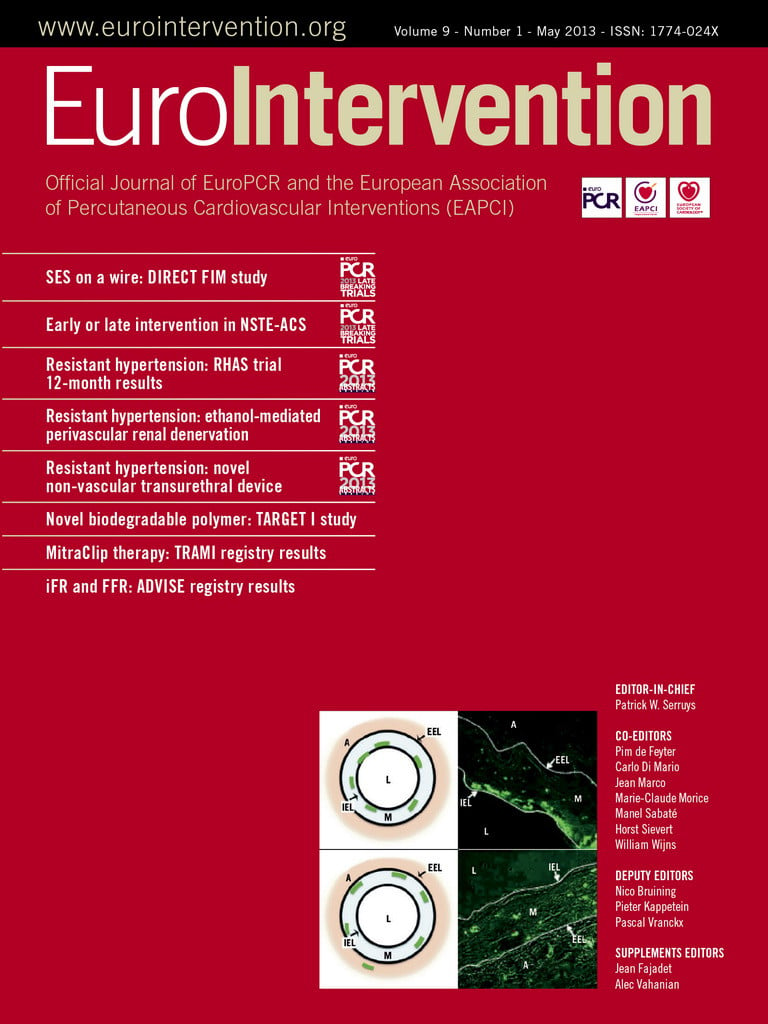Interventional cardiology is not only a young and vibrant clinical field, but it has also emerged as a fertile ground for patient oriented research. In the past decades there have been major scientific breakthroughs in interventional cardiology and, without exception, these were initiated by observational studies and clinical trials. The application of high-quality standards with respect to the study design, conduct and data analysis has been key to their success.
The selection of an appropriate study design is a prerequisite to obtain reliable results. In particular, patient selection and information collection should be arranged in such a way that effect estimates are valid, i.e., free of systematic errors, or “unbiased”. In observational studies, it is necessary to assess and control for confounding, which may occur through all kinds of mechanisms. The study design can be considered the foundation of a building. Since no one builds a tower without involving an architect, no one should design a study without involving a professional in clinical research methodology.
Adequate implementation is the second pillar of a successful and meaningful clinical study. Everyday research practice can be stubborn, and things sometimes do not go to plan. Indeed, a well thought out study protocol can address “what-if” scenarios. Still, unexpected situations may occur and it is then that a defendable, rational and consistent response is essential. Independent study monitors can be quite helpful in this respect. Monitors are also key players in obtaining high-quality data, as well as in guarding research ethics.
Data analysis only occurs after all patients are enrolled, follow-up has ended, the study is closed and the database locked. In that phase, the data are “as they are”. It is therefore a misunderstanding that statisticians can correct for imperfections in study design and conduct. Still, the application of appropriate statistical techniques is important. Most (“parametric”) statistical tests are based on data models and can thus only be applied if the corresponding model assumptions are fulfilled. Professional methodologists may provide valuable advice in this respect.
EuroIntervention’s ambition is not only to maintain, but also to improve its forum of high-quality research and education in the field of percutaneous and surgical cardiovascular interventions. The editorial board has therefore decided that all study design papers, original research manuscripts and meta-analyses will be subject to a separate review of the intended or applied methodology. We have agreed to undertake this task as the “Methodology and Statistics Review Board”. It is our intention to seek alignment on a statistical front with the European Heart Journal, as well as the other journals in the ESC family. Important methodological and statistical aspects that we will review include (but are not limited to) internal and external validity, endpoint definitions, sample size calculation, statistical hypothesis testing, missing data and multivariate models. We will provide examples of advanced methods of data analysis that were applied in studies appearing in EuroIntervention. Furthermore, a “Methodology and Statistics Note” will be published in EuroIntervention every other month by European and international experts, addressing methodological topics that we consider relevant for interventional cardiologists. To commence the series, in this issue of the Journal, Lingsma et al address the analysis of clustered data, such as multiple lesions within the same patient; this includes online dedicated appendices1.
Suggestions for future topics are most welcome.
Conflict of interest statement
The authors have no conflicts of interest to declare.
Reference

